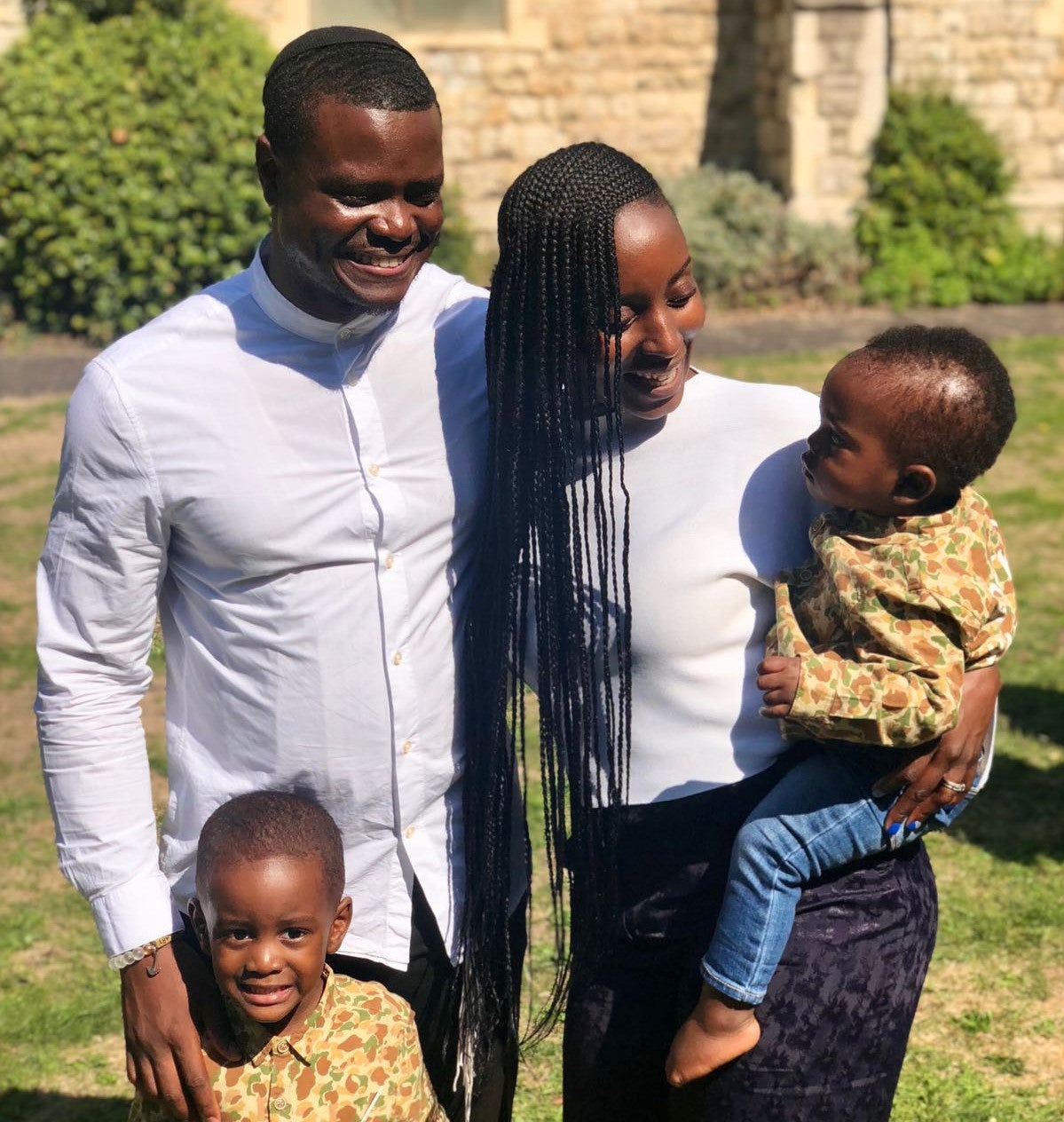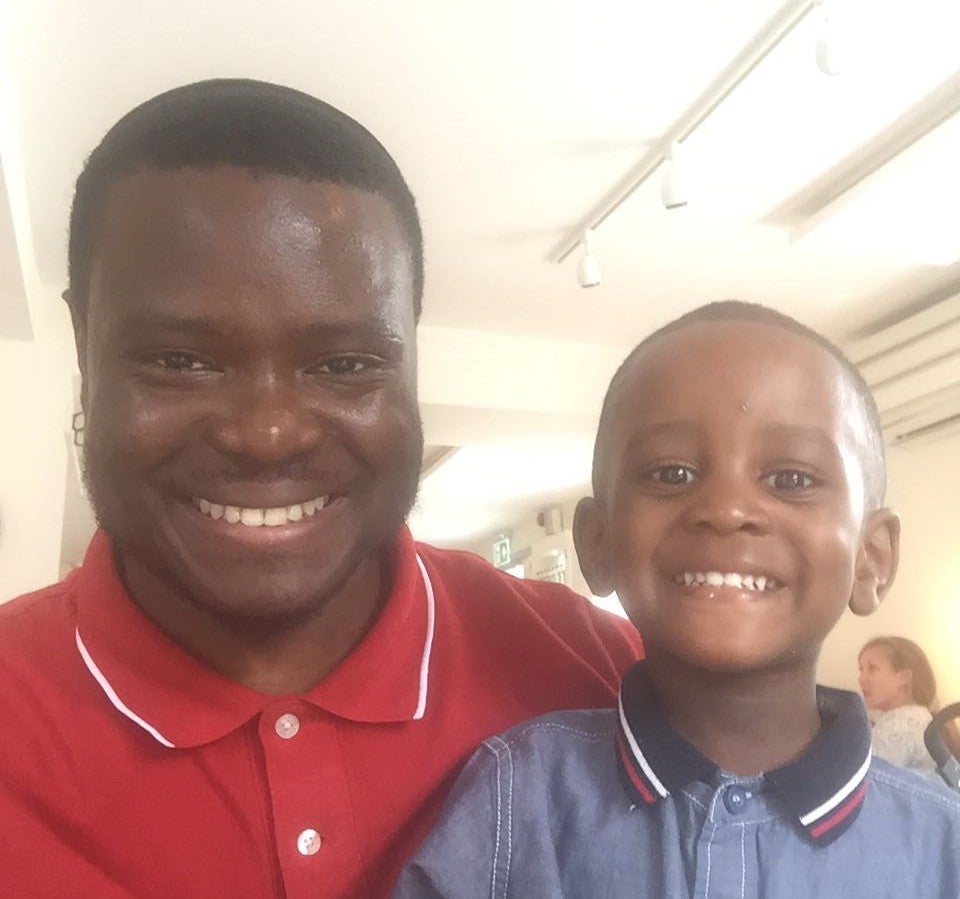Home Office u-turns on deporting former convict turned prison reformer
'I’m smiling from ear to ear, but I’m still coming to terms with it. Each day that passed it got harder and harder to cope.'
A former prisoner turned penal reform campaigner who was set to be deported has been released from detention after The Independent highlighted his plight.
Hilary Ineomo-Marcus, 34, who has two British children under the age of four, said he was “smiling from ear to ear” after being able to return home to his family in London after a month in Harmondsworth removal centre.
But the Nigerian national, who has lived in the UK since the age of 10, said he was still “on edge” because the Home Office is yet to make a decision about his right to remain in the UK.
Mr Ineomo-Marcus was granted leave to remain in the early 2000s but immigration officials revoked his status after he served a 15-month prison sentence in 2013 for a tax offence.
During his time in prison, Mr Ineomo-Marcus worked as a presenter on National Prison Radio, where he was commended as being the best prisoner-producer ever to have worked on the station.
He continued doing radio work after his release, presenting a number of programmes about prison and rehabilitation on national radio. He also volunteered for charities that seek to deter young people from offending.
Alongside his voluntary work, the 34-year-old is primary carer for his two sons, aged three and one; his wife Stacey, whom he married five years ago, works in the civil service.
But Mr Ineomo-Marcus was served a deportation notice on 19 November this year while signing on with the Home Office, and was then detained, meaning his wife had to take four weeks off work to care for their sons.
He was due to be deported several days later, but the removal was halted because he was suffering from high blood pressure.
The 34-year-old was released from detention on Tuesday afternoon but was given no reason as to why – told only that he must continue to sign on with the Home Office on a weekly basis.

Speaking to The Independent the day after he was released, he said: “I’m in good spirits. I’m smiling from ear to ear. I was able to take my son to school this morning and have my youngest in my arms right now.
“But I’m still coming to terms with what happened, and I’m liable to be detained again.”
On his time in detention, Mr Ineomo-Marcus said: “Each day that passed it got harder and harder to cope. You’re seeing things, constantly having conversations with people who are in the same situations than you or worse.
“I started taking anti-depressants and sleeping tablets around two weeks into being there. It was exhaustion, the environment, the anxiety, missing my family, thoughts of despair, anguish, not being able to see any light in the end of the tunnel.”
His wife, Stacey Ineomo-Marcus, said she was “so relieved” that her husband had been released after an “extremely stressful” few weeks.
“He just knocked on the door – I nearly had a heart attack. The kids were so emotional about seeing him. Our eldest one was so happy that Daddy could take him to school this morning. It’s such a relief to have him back at home,” said the 31-year-old.
“It’s been extremely stressful. Especially with the kids; they were always asking when is Daddy coming and ‘why can’t Daddy watch my school play?’ I just kept telling them he was away at the moment and he would be home soon.
“I’m so relieved and happy, but it’s not over yet. We’re just hoping and praying he will be able to stay.”
The family’s solicitors from Coram Children’s Legal Centre said they were awaiting a decision from the Home Office after lodging further submissions, including an independent social work report stating that the children’s best interests can only be met by their father remaining with them in the UK.
Mr Ineomo-Marcus described the crime he committed in 2013 as a “lapse of judgement”, saying he had invested £4,500 into a business set up his cousin, which – unbeknownst to him – was claiming back taxes it was not entitled to.
“A crime is a crime – I am in no way trying to justify it. I did my time. But this is a form of double punishment. Prison did what it is supposed to do,” he continued. “I haven’t reoffended, I’ve given back to society. The probation service itself has assessed me as being low-risk of reoffending,” he said.

Reflecting on the impact his removal would have on his sons, he said: “There’s a massive crisis in our society right now where young boys are stabbing each other. A lot of them are young black boys from disadvantaged backgrounds.
“And when I’ve had conversations with young offenders in prisons there is a common theme and that is an absence of a father figure in their lives.
“That is worrying for me, because these boys are potentially my sons. That scares me.”
The Home Office has been approached for comment.
Join our commenting forum
Join thought-provoking conversations, follow other Independent readers and see their replies
Comments
Bookmark popover
Removed from bookmarks